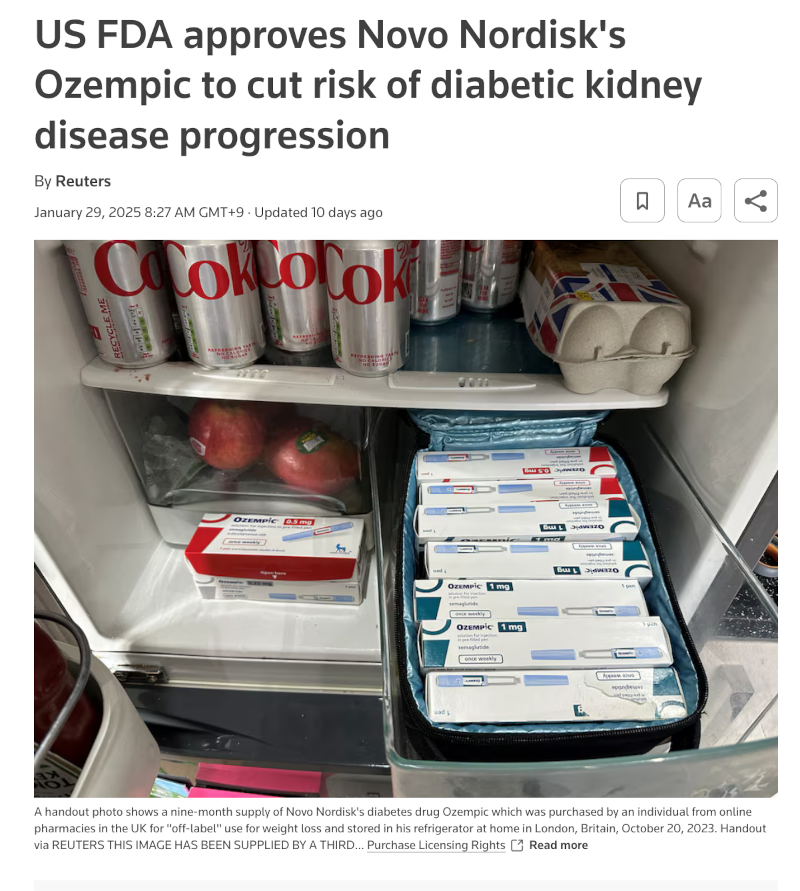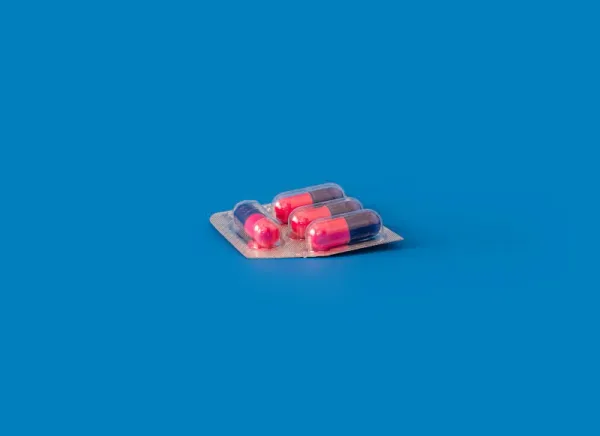Ozempic approved for Chronic Kidney Disease
The FDA has approved Semaglutide for chronic kidney disease. We explore research and the possible implications for insurance coverage and more.

While news of the benefits (and possible benefits) of GLP1 Receptor Agonists travels fast, regulatory bodies such as the FDA move slowly.
Check out our quick explainer
The FDA's job is to move slowly and carefully, and they've finally reached a decision on GLP1 (in this case Semaglutide, a formulation created by Novo Nordisk) and it's effectiveness in treating kidney disease for people with Type 2 diabetes:

That said, Ozempic's benefits related to treating maladies that come with type 2 diabetes are not unexpected – it's an excellent type 2 diabetes drug for a reason.
While there hasn't been an official FDA announcement yet (the incoming administration is undergoing a modernization effort that started in 2024), it's great to see this endorsement of GLP1s as a class of drugs.
How do we know Ozempic and GLP1s broadly help with Kidney Disease?
There's been some research that we covered mid last year:
The rest of this article is no longer available for free – if you'd like to read the rest of our analysis, check us out on Substack:




